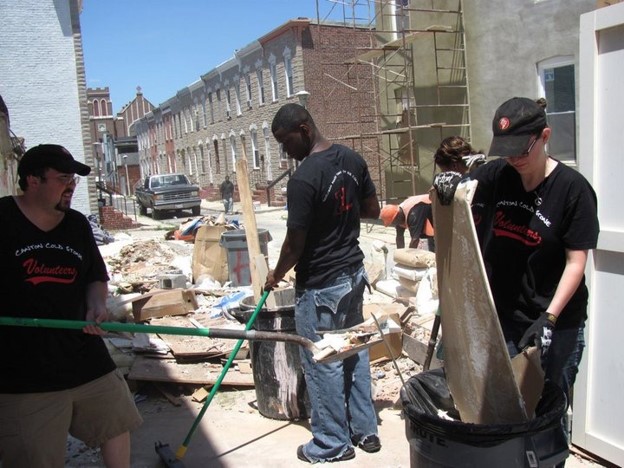
I was an excited young restaurateur of a small ice cream franchise in Baltimore City. My obsession with meaningful work was already very present, and my employees and I were laser focused on our mission of making Baltimore a happier city, one customer interaction at a time. I was pouring the Kool-Aid and we were all drinking it. Until one day, I looked around and realized that our happiness project was starting to feel a whole lot like work.
I’m sure that you’ve experienced this – maybe as the founder of a company, or as a new hire, or as part of a new team. At first, the excitement is palpable, the mission is everything, you are obsessed with the greater “why.”
But slowly… over time… you begin to lose that magic. You begin to get lost in the paperwork, in the deliverables, in the emails… in the daily grind. Until one day your mission statement is just something collecting dust on a poster in the breakroom.
For us, we began to see our customers as transactions, our fun flavored ice creams as product, and our teammates as mere co-workers. We were losing our passion and we needed to find a way to reignite the flame.
I called an all-hands meeting and we decided to take our mission beyond our four walls. I had some cutesy Volunteer T-shirts created, got on the phone, and along with my crew of 15 teenage and young adult ice cream servers, we began to live our mission once again. But this time, we did it even bigger. We went out to our community, volunteering with every local non-profit that would have us.
We assisted an art course for people experiencing homelessness at Healthcare for the Homeless, we threw a Disney movie night (and Sundae bar, of course!) for sick children and their families at the Ronald McDonald House, we hosted a rockin dance party with over 100 individuals with developmental disabilities in partnership with The Arc Baltimore.
This was my first exposure to “corporate volunteering” (now the focus of much of my research), and it was transformational for all of us involved. The nonprofit partners clearly benefitted from our involvement, the restaurant got some good PR, but even greater was the impact that these activities had on our bottom line and on my employees.
In the past decade the research on corporate volunteering has been piling up. For organizations and their employees, corporate volunteering programs have been found to:
• Increase employee motivation & morale
• Help develop employees
• Increase retention
• Increase employee emotional commitment to the organization
• Improve overall employee performance
• Improve teamwork
• Improve communication
• AND increase feelings of work meaningfulness
When I first launched our volunteer program the changes were palpable. My employees began to vibe better, customer service was noticeably improved, I had full commitment from my team.
We began to live our mission again. Our fire was reignited; it was exciting to come to work again.
**Of course, when establishing volunteer initiatives at work, its important to do it well or you might end up with some unexpected issues – more on that, next time!

Recent Comments